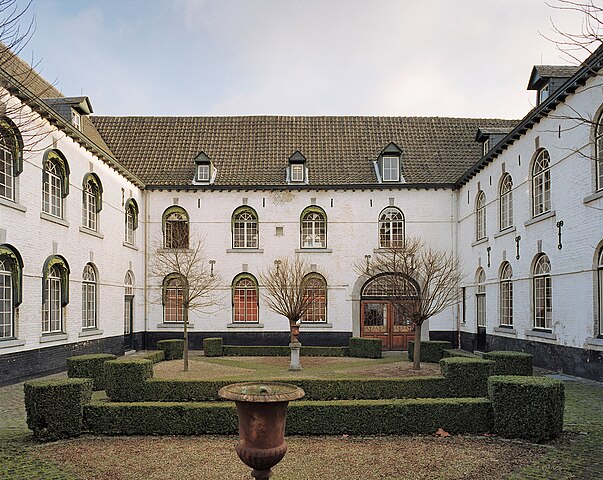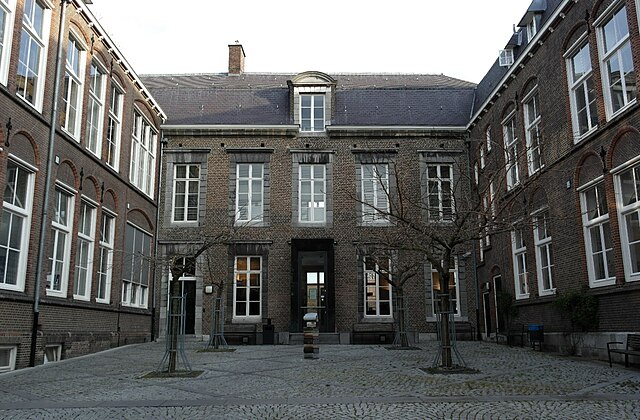
Thammasat University students who are interested in political science, education, government, history, sociology, philosophy, and related subjects may find a newly available book useful.
Seven Democratic Virtues of Liberal Education: A Student-Inspired Agenda for Teaching Civic Virtue in European Universities is an Open Access book, available for free download at this link:
https://directory.doabooks.org/handle/20.500.12854/93519
The TU Library collection includes several books about different aspects of civic education.
The author of Seven Democratic Virtues of Liberal Education is Professor Teun J. Dekker, who teaches liberal arts and sciences education at University College Maastricht – Maastricht University, The Netherlands. His faculty homepage explains:
Teun J Dekker (1980) is Professor of Liberal Arts and Sciences Education at University College Maastricht, where he teaches courses on the intersection of the Social Sciences and the Humanities, including History of Political Thought and Distributive Justice in Contemporary Political Philosophy.
As Professor of Liberal Arts and Sciences Education, his main duties are:
- Conducting theoretical and philosophical research concerning the nature of Liberal Arts education in the European context, as well as its social, political, and educational significance.
- Contributing to the academic community, teaching, and management of University College Maastricht, with a focus on safeguarding, developing, and spreading its Liberal Arts philosophy.
- Spreading public awareness of Liberal Arts education among the general public, in the educational sector and in the labor market, both in the Netherlands and in Europe.
- Further advancing Liberal Arts education within Maastricht University, by investigating and initiating new educational projects at University College Maastricht and the Maastricht School of Liberal Arts and Sciences.
- Promoting Liberal Arts education in the Netherlands, by developing and contributing to national initiatives in cooperation with other Liberal Arts programs in the Netherlands and by liaising with policymakers.
- Furthering Liberal Arts education in Europe, by sharing expertise with Liberal Arts programs throughout Europe and by consulting for Universities on matters relating to Liberal Arts education.

The publisher’s description of Seven Democratic Virtues of Liberal Education follows:
This book argues that the liberal arts and sciences (LAS) model of education can inspire reform across higher education to help students acquire crucial civic virtues. Based on interviews with 59 students from LAS programmes across Europe, the book posits that LAS education can develop a range of citizenship skills that are central to the democratic process. The interviews provide insight into how studying LAS prepares students for citizenship by asking them to reflect on their education, what it taught them, and how it did so. Building on these insights, seven key democratic competencies are identified and linked to concrete educational practices that foster them, leading to an agenda for higher education reform. Ultimately arguing for making the teaching of civic virtue a more central part of university education in Europe, this book will appeal to researchers, educators, and politicians with an interest in education policy, philosophy of education, and democratic theory, as well as concerned citizens.
The book begins:
Historically, higher education was very much concerned with the cultivation of civic virtue. In ancient Greece and Rome, one of the major goals of education was to help free people, i.e., those who were not slaves, develop the skills they needed to participate in public life. This liberal tradition of education carried on through medieval times and into the modern age, giving rise to what we know now as liberal arts and sciences (LAS) education. This educational philosophy is prominent in the United States, although even there the civic aspect of liberal education is increasingly questioned, and more emphasis is placed on employability. In Europe, however, higher education has moved away from the liberal tradition over the last few centuries. German institutions, as well as higher education systems influenced by the Germanic tradition, came to emphasise research-based education in specific academic disciplines, while French institutions saw themselves as preparing students for roles in state bureaucracies. It is only in the past 30 years or so that European innovators in higher education have created new LAS programmes. These programmes are diverse in setup and function in very different contexts, but they constitute something of an educational model that differs sharply from that which predominates in higher education on the continent. This liberal model has great potential to inspire European higher education to better teach the civic virtues students require to participate in democracy. Reviving the liberal tradition of higher education is our best bet for reinvigorating the teaching of civic virtue in Europe and thereby enabling our democracies to live up to their highest aspirations. The Liberal Education Model in Europe Drawing on the LAS tradition from North America and responding to current developments in thinking about multidisciplinarity and student-centred education, liberal education, as it has emerged in Europe over the past 30 years, has several roots. On the one hand, a range of programmes was set up in Central and Eastern Europe after the fall of communism. During authoritarian times, universities had the role of reproducing party elites and propagating the official ideology. When the communist regimes ended, it was essential to consider how higher education could be reformed to suit newly free societies. While most institutions chose to follow the typical European model, a group of educators felt that the moment demanded a more ambitious reform agenda. Under the moniker of Artes Liberales, they gathered several times to discuss the future of higher education in Central and Eastern Europe and initiated LAS programmes that operate to this day. A number of Western European countries began to establish their own LAS programmes a few years later, albeit for different reasons… There are now over 80 programmes in Europe that self-identify as offering liberal education, with numbers continuing to grow.6 Still, one should not overestimate the success of the LAS movement, as these programmes currently enrol less than 1% of students in Europe and the exponential growth of recent years has subsided. At the same time, one can speak of a genuine, pan-European movement; not only do LAS programmes share an educational model, but they also work together in a range of overlapping national and international networks. Liberal education programmes depart considerably from the classical model of higher education in Europe. Traditionally, much of European higher education has been organised around mono-disciplinary programmes, such as law, economics, or medicine, which are primarily aimed at preparing students for professional careers. They typically employ conservative pedagogies, such as large-scale lectures and closed-book exams that require students to simply regurgitate what they have learned. They are also fairly transactional in how they relate to students, seeing teaching as a formal process of following courses, doing assessments, and receiving credits for those assessments until all requirements are met and a degree is issued. Although in other ways European higher education is highly diverse – all kinds of different institutions exist, catering to different populations, with different resource levels, different pedagogical and curricular profiles, and different educational cultures – this picture rings true for much of higher education across the continent.

(All images courtesy of Wikimedia Commons)
